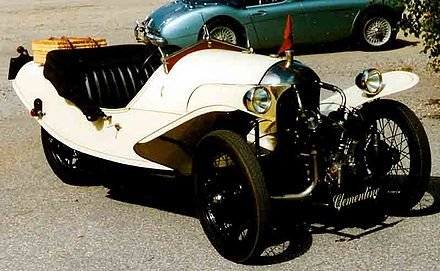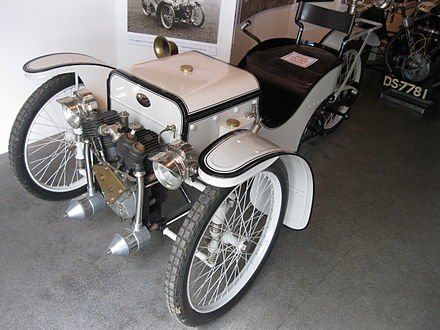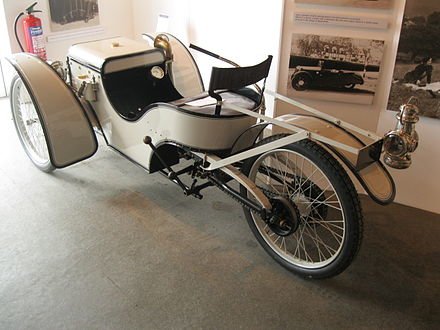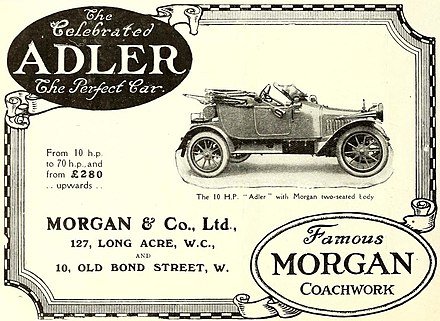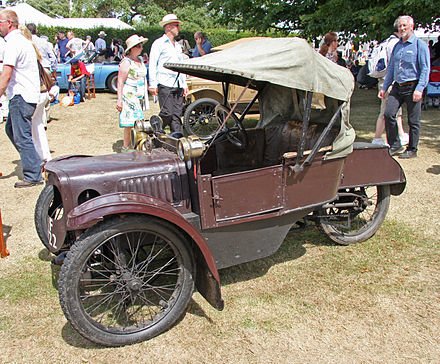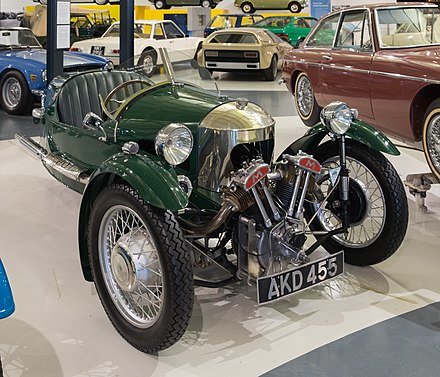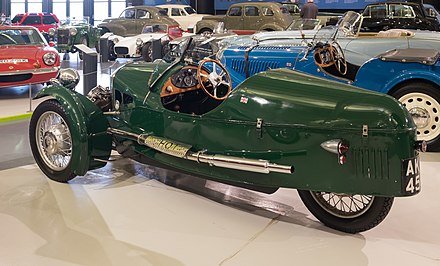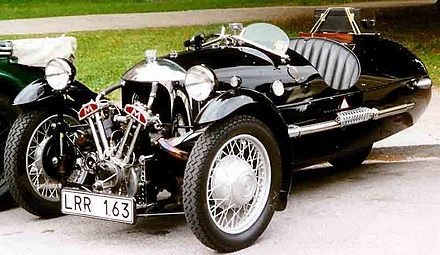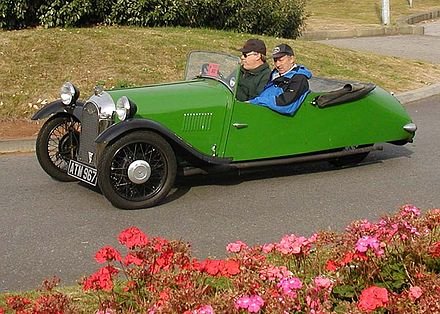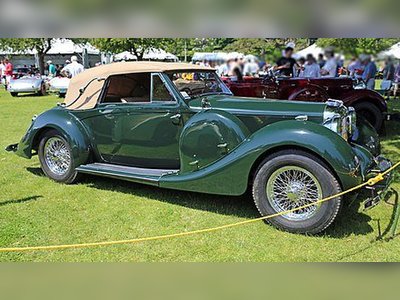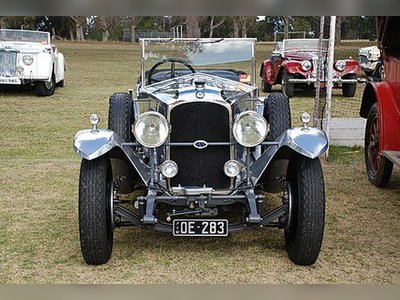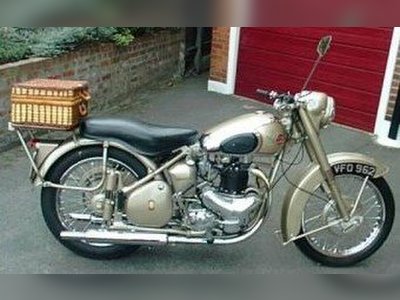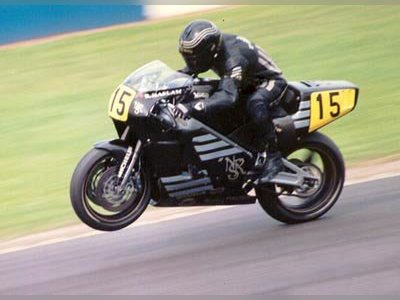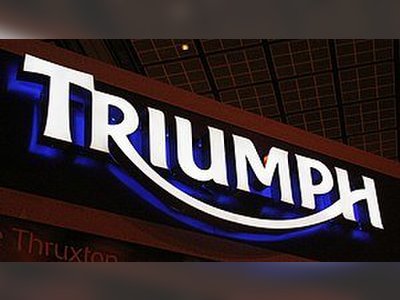British Heritage
Remember, Cherish, Learn.
beta
Morgan
Contribution of Morgan Motor Company to British Heritage.
The Morgan Motor Company, founded in 1910 by Henry Frederick Stanley Morgan, holds a significant place in British heritage as one of the oldest and most iconic motor car manufacturers in the country. Its legacy spans over a century, making it a living testament to British automotive ingenuity and craftsmanship.
The company's dedication to handcrafting automobiles with a blend of traditional and modern techniques has set it apart in the automotive industry. One of the distinctive features that adds to its British heritage is the use of wood in the construction of its vehicles. Since its inception, Morgan cars have incorporated wooden framing for the body shell, a practice that has been preserved into the 21st century. This unique approach not only gives Morgan cars a classic and timeless appearance but also symbolizes the artisanal craftsmanship deeply rooted in British tradition.
Throughout its history, the Morgan Motor Company has produced a diverse range of vehicles, from its early three-wheelers to its more contemporary models. The company's commitment to innovation and improvement has allowed it to adapt to changing times without compromising its core values. The Morgan name has become synonymous with high-performance sports cars, elegance, and the allure of open-top motoring, representing the epitome of British driving pleasure.
The Morgan Motor Company's journey began with H.F.S. Morgan's first car design, a single-seat three-wheeled runabout, built in 1908. It was a pioneering vehicle, featuring innovative engineering solutions like independent front suspension, a backbone chassis, and a two-speed transmission. H.F.S. Morgan's entrepreneurial spirit and passion for automobiles led him to patent his design and establish the Morgan Motor Company in 1912, with his father as its first chairman.
The three-wheeler models gained popularity, and the company's production of three-wheelers approached 1000 by the time World War I arrived. However, the rising competition from small cars like the Austin 7 and the original Morris Minor compelled Morgan to develop four-wheeled models. The introduction of the Morgan 4/4 in 1936 marked the company's transition to full-fledged four-wheeled cars, phasing out three-wheelers by 1952.
In the 1960s, the Morgan Motor Company faced challenges in the United States due to stringent safety and emissions regulations. However, the company found a lifeline with the Rover V8 engine, which allowed it to produce fully US-compliant vehicles from 1992 to 1996 and then again from 1998 to 2004. The Morgan Plus 8, equipped with the powerful Rover V8 engine, exemplified the blend of classic design and modern performance that had become synonymous with the Morgan brand.
In 2000, Morgan showcased its Aero 8 model, a groundbreaking sports car with a bonded aluminum chassis and a lightweight body. The Aero 8's innovative design and powerful BMW V8 engine offered supercar performance, reinforcing Morgan's commitment to excellence in engineering and design.
In 2011, the Morgan Motor Company rekindled the legacy of its iconic three-wheelers with the introduction of the Morgan 3 Wheeler. Paying homage to its roots, the 3 Wheeler embraced classic design elements while incorporating modern technology. This unique model garnered widespread attention and acclaim, further solidifying Morgan's reputation as an automaker that cherishes tradition while embracing the future.
Morgan cars have also made their mark on the racetrack, participating in various motorsport events. From club and historic racing to competing in prestigious races like the Le Mans 24hr, Morgan vehicles have showcased their performance capabilities and endurance. Notably, the Morgan Aero 8 GT car campaigned in the 2008 Britcar races and the 2008 Britcar 24hrs at Silverstone, reflecting the company's dedication to both road cars and racing endeavors.
The Morgan Motor Company stands as a testament to British heritage, combining traditional craftsmanship with innovative engineering. With its handcrafted vehicles, iconic design, and participation in motorsport, Morgan has left an indelible mark on the British automotive industry. The company's commitment to preserving its legacy while embracing modernity ensures that it remains an enduring symbol of British excellence in the world of motoring.
The company's dedication to handcrafting automobiles with a blend of traditional and modern techniques has set it apart in the automotive industry. One of the distinctive features that adds to its British heritage is the use of wood in the construction of its vehicles. Since its inception, Morgan cars have incorporated wooden framing for the body shell, a practice that has been preserved into the 21st century. This unique approach not only gives Morgan cars a classic and timeless appearance but also symbolizes the artisanal craftsmanship deeply rooted in British tradition.
Throughout its history, the Morgan Motor Company has produced a diverse range of vehicles, from its early three-wheelers to its more contemporary models. The company's commitment to innovation and improvement has allowed it to adapt to changing times without compromising its core values. The Morgan name has become synonymous with high-performance sports cars, elegance, and the allure of open-top motoring, representing the epitome of British driving pleasure.
Early Cars: Three-wheelers and 4/4s.
The Morgan Motor Company's journey began with H.F.S. Morgan's first car design, a single-seat three-wheeled runabout, built in 1908. It was a pioneering vehicle, featuring innovative engineering solutions like independent front suspension, a backbone chassis, and a two-speed transmission. H.F.S. Morgan's entrepreneurial spirit and passion for automobiles led him to patent his design and establish the Morgan Motor Company in 1912, with his father as its first chairman.
The three-wheeler models gained popularity, and the company's production of three-wheelers approached 1000 by the time World War I arrived. However, the rising competition from small cars like the Austin 7 and the original Morris Minor compelled Morgan to develop four-wheeled models. The introduction of the Morgan 4/4 in 1936 marked the company's transition to full-fledged four-wheeled cars, phasing out three-wheelers by 1952.
The Morgan Plus 8 and Aero Series.
In the 1960s, the Morgan Motor Company faced challenges in the United States due to stringent safety and emissions regulations. However, the company found a lifeline with the Rover V8 engine, which allowed it to produce fully US-compliant vehicles from 1992 to 1996 and then again from 1998 to 2004. The Morgan Plus 8, equipped with the powerful Rover V8 engine, exemplified the blend of classic design and modern performance that had become synonymous with the Morgan brand.
In 2000, Morgan showcased its Aero 8 model, a groundbreaking sports car with a bonded aluminum chassis and a lightweight body. The Aero 8's innovative design and powerful BMW V8 engine offered supercar performance, reinforcing Morgan's commitment to excellence in engineering and design.
The Morgan 3 Wheeler: A Resurgence.
In 2011, the Morgan Motor Company rekindled the legacy of its iconic three-wheelers with the introduction of the Morgan 3 Wheeler. Paying homage to its roots, the 3 Wheeler embraced classic design elements while incorporating modern technology. This unique model garnered widespread attention and acclaim, further solidifying Morgan's reputation as an automaker that cherishes tradition while embracing the future.
Motorsport Heritage
Morgan cars have also made their mark on the racetrack, participating in various motorsport events. From club and historic racing to competing in prestigious races like the Le Mans 24hr, Morgan vehicles have showcased their performance capabilities and endurance. Notably, the Morgan Aero 8 GT car campaigned in the 2008 Britcar races and the 2008 Britcar 24hrs at Silverstone, reflecting the company's dedication to both road cars and racing endeavors.
Conclusion
The Morgan Motor Company stands as a testament to British heritage, combining traditional craftsmanship with innovative engineering. With its handcrafted vehicles, iconic design, and participation in motorsport, Morgan has left an indelible mark on the British automotive industry. The company's commitment to preserving its legacy while embracing modernity ensures that it remains an enduring symbol of British excellence in the world of motoring.
- Morgan Motor Companyen.wikipedia.org
